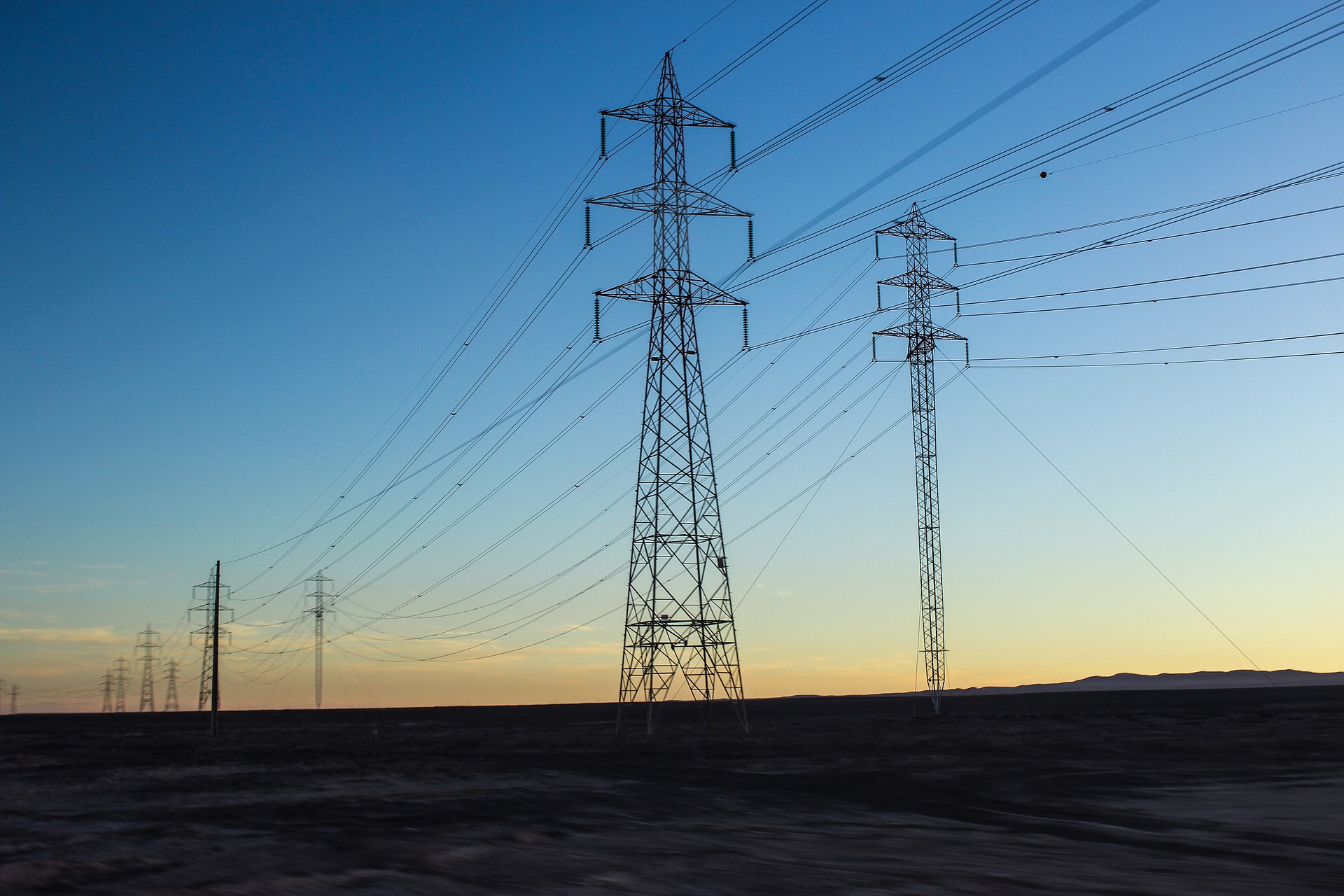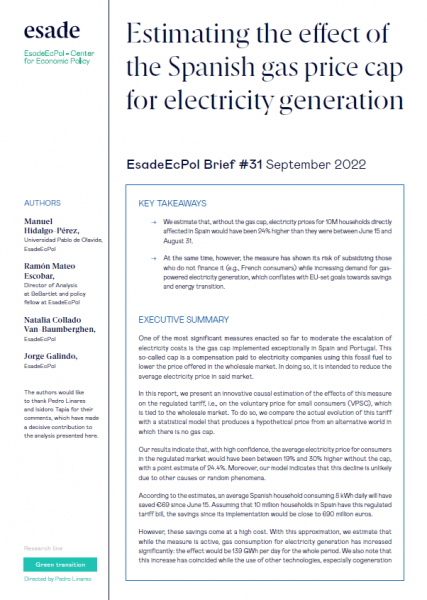
Estimating the effect of the Spanish gas price cap for electricity generation
Manuel Hidalgo Pérez, Ramón Mateo Escobar, Natalia Collado Van-Baumberghen, Jorge Galindo
30 Sep, 2022
One of the most significant measures enacted so far to moderate the escalation of electricity costs is the gas cap implemented exceptionally in Spain and Portugal. This so-called cap is a compensation paid to electricity companies using this fossil fuel to lower the price offered in the wholesale market. In doing so, it is intended to reduce the average electricity price in said market.
In this report, we present an innovative causal estimation of the effects of this measure on the regulated tariff, i.e., on the voluntary price for small consumers (VPSC), which is tied to the wholesale market. To do so, we compare the actual evolution of this tariff with a statistical model that produces a hypothetical price from an alternative world in which there is no gas cap.
Our results indicate that, with high confidence, the average electricity price for consumers in the regulated market would have been between 19% and 30% higher without the cap, with a point estimate of 24.4%. Moreover, our model indicates that this decline is unlikely due to other causes or random phenomena.
According to the estimates, an average Spanish household consuming 8 kWh daily will have saved €69 since June 15. Assuming that 10 million households in Spain have this regulated tariff bill, the savings since its implementation would be close to 690 million euros.
However, these savings come at a high cost. With this approximation, we estimate that while the measure is active, gas consumption for electricity generation has increased significantly: the effect would be 139 GWh per day for the whole period. We also note that this increase has coincided while the use of other technologies, especially cogeneration and hydropower, has decreased. It should be borne in mind that the context of pronounced drought during this summer, which has hindered hydropower production, prevents us from attributing this drop to the new measure.
The data obtained does nonetheless suggest that, when it coincides with adverse events for clean technologies, the gas cap may reduce the incentive for transitioning to clean sources. In particular, the opposite effect might be provoked: encouraging gas consumption. This is undesirable in the current European context, which sets both short-term savings and long-term decarbonization targets.
In addition, we observe the evolution of the trade balance with the French electricity market, the most interconnected with the Spanish market since the measure came into effect. We conclude that:
- Exports of electricity to France and Portugal have increased considerably: if the trend observed today continues, by the end of the year, exports will double those made in 2021.
- At the same time, the price of electricity in France has become more variable, which cannot be reliably attributed to the current cap.
Both events occur against the backdrop of the failure of the French nuclear system, the cornerstone of France’s electricity supply. This complicates the interpretation of our data. However, it serves as an example of what could happen with a measure like the Spanish gas cap applied throughout the EU. The interconnections of its member countries to the outside world might bring a “leakage” of the money invested in the form of increased consumption of gas-based electricity to border countries that would benefit from such investment at zero cost.


Research Economist en EsadeEcPol. Máster en Economía Industrial y Mercados regulados por la Universidad Carlos III de Madrid
View profile



